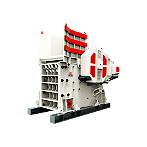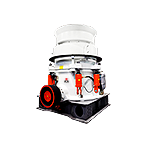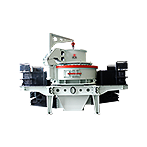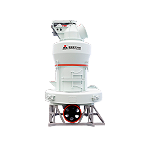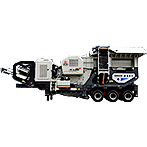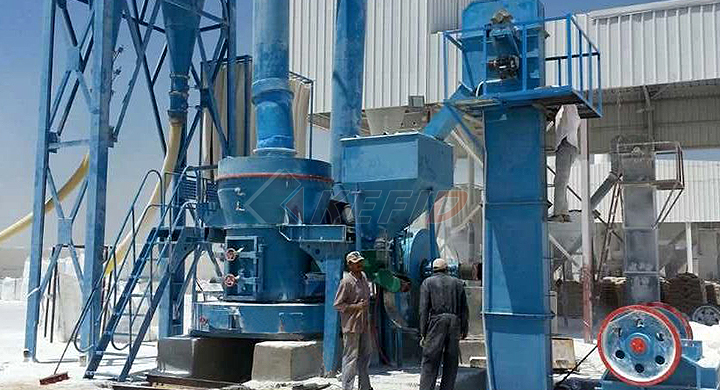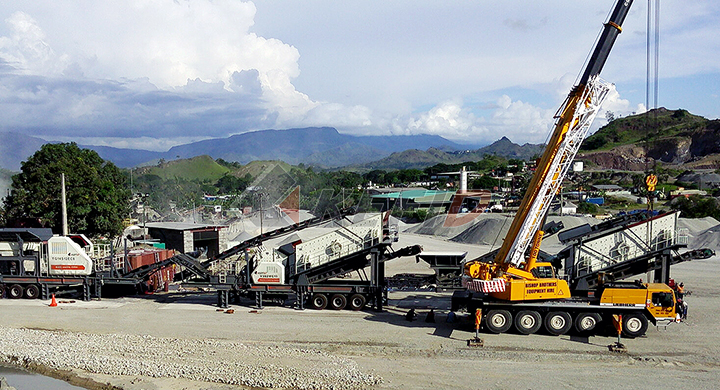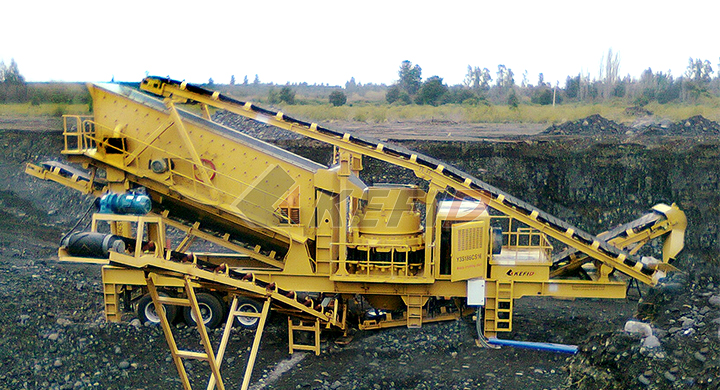магазин
Kinetic Thermochemical Hydrometallurgy
KEFID,Дробильно-сортировочное оборудование Китая высокого качества, стандартное дробильное оборудование. На протяжении более 30 лет мы занимаемся исследованиями и разработками и производством дробильного оборудования, дробления зданий, промышленных дробилок и экологически чистых строительных материалов, и предлагаем профессиональные решения и дополнительные продукты для создания ценность для клиентов.
Онлайн сообщение
Kinetic Thermochemical Hydrometallurgy

Effect of Different Kinetic Factors on the Thermochemistry
Mixture of phosphoric and sulfuric acid solutions has been used to investigate the dissolution of natural phosphates (PN) by DRC The effect of concentration, particle size and stirring speed reaction is examined Thermochimique properties of each kinetic parameters reaction are determined It was found that these parameters have a considerable effect on the thermochemical aspect of the attackAug 10, 2013· The thermochemical and kinetic study of the attack of “B” type carbonate fluorapatites (BCO 3Fap) by a (19% w/w P 2 O 5) acid solution was performed using microcalorimetry at a temperature range between 25 and 55 °C and a pH 06The results were processed iteratively in order to get the kinetic constant and the enthalpy of dissolution reactionThermochemical and kinetic studies of the acid attack of

(PDF) Effect of Different Kinetic Factors on the
The kinetic study performed at 25 °C shows that the attack rate increased with increasing acid concentration and stirring speed But, increasing the size of the particles and the liquidtosolidHydrometallurgy 2002;67:79–86 CrossRef Google Scholar 23 Zendah H, Khattech I, Jemal M Thermochemical and kinetic studies of the acid attack of “B” type carbonate fluorapatites at different temperatures (25–55)Thermochemical and kinetic study of the attack of

Thermodynamics and Kinetics Stanford University
Kinetic, not thermodynamic: K doesn't really have units, though we often treat it as if it does Rate constant changes with T and with catalyst A catalyst would change the activation energy for the ratedetermining step K is independent of the reaction mechanism It is written from the products and reactants in the final, overall reactionChemical industry produces and uses high sulfuric acid volumes, and many processes generate high spent acid (ASS) volumes The use of ASS as starting materials contributes to the protection of the environment Should this alternative not be implemented, ASS volumes could represent high amounts of wastes The thermal oxidative cracking process starts with ASS to produce commercial gradeA Kinetic Study of the Decomposition of Spent Sulfuric

The digestion of phosphate ore in phosphoric acid
Thermochemical and kinetic investigations of the phosphoric attack of Tunisian phosphate ore Journal of Thermal Analysis and Calorimetry 2018, 131 (3) , 31213132 DOI: 101007/s109730176825z Khemaies Brahim, Amira SoussiBaatout, Ismail Khattech, Mohamed JemalDec 20, 2016· The thermochemical and kinetic studies of dissolution of magnesiumcarbonate cosubstituted fluorapatites in 3 wt% hydrochloric acid solution were performed using microcalorimetry at a temperature between 25 and 55 °C The results were processed iteratively in order to deduce the thermochemical and kinetic parameters Hydrometallurgy, 46Thermochemistry and kinetics of the attack of magnesium

Thermochemical and kinetic studies of the acid attack of
Aug 10, 2013· The thermochemical and kinetic study of the attack of “B” type carbonate fluorapatites (BCO 3Fap) by a (19% w/w P 2 O 5) acid solution was performed using microcalorimetry at a temperature range between 25 and 55 °C and a pH 06The results were processed iteratively in order to get the kinetic constant and the enthalpy of dissolution reactionJun 05, 2020· The starting material used in this work is a slag that was produced from a smeltingreduction process of lowgrade bauxite from our previous work (Azof et al, 2018)The lowgrade bauxite was mixed with lime in a mass ratio of CaO/Al 2 O 3 equals to 10 The ratio was chosen so that the produced slag would have leachable phases in a sodium carbonate solution, as claimed in theLeaching kinetics and mechanism of slag produced from

Thermochemical and kinetic study of the attack of
Thermochemical and kinetic study of the attack of fluorapatite by sulfuric acid solution at different temperatures Article in Journal of Thermal Analysis and Calorimetry · November 2019 with 12 ReadsHydrochloric acid leaching of nickel from spent Ni–Al 2 O 3 catalyst (127% Ni, 392% Al and 068% Fe) has been investigated at a range of conditions by varying particle size (50–180 μm), acid concentration (0025–2 M), pulp density (02–04%, w/v) and temperature (293–353 K) Nickel was selectively leached from the catalyst, irrespective of the different conditionsA kinetic study on hydrochloric acid leaching of nickel

Thermochemical and kinetic investigations of the
Nov 27, 2017· A thermochemical study of the attack of Tunisian phosphate ore by aqueous phosphoric acid was investigated using a differential reaction calorimeter “DRC” The influence of the liquidtosolid ratio, reaction temperature, acid concentration and particle size on the attack reaction was studied The results obtained for various liquidtosolid ratios showed three domains, each oneMar 27, 2009· Van der Sluis et al's model was used to determine the rate of the partial dissolution of a Tunisian phosphate rock with dilute phosphoric acid (15 mass% P 2 O 5)When the temperature rises from 25 to 90°C, for a given particle size, the mass‐transfer coefficients, k L °, vary from 3 × 10 −3 to 8 × 10 −3 m ·s −1The corresponding diffusion coefficients, D, lies between 6 × 10Kinetics of leaching of tunisian phosphate ore particles

Dissolution Kinetics of Phosphate Ore in H2SO4 Solutions
Apr 16, 2003· Thermochemical and kinetic study of the attack of fluorapatite by sulfuric acid solution at different temperatures Journal of Thermal Analysis and Calorimetry 2019, 44 DOI: 101007/s10973019090444 Balsam Belgacem, Sébastien Leveneur, Mohamed Chlendi, Lionel Estel, Mohamed Bagane The aid of calorimetry for kinetic and thermal studykinetic and thermochemical research For research in the application of particle image velocimetry (PIV) in pyrometallurgical applications, an ultrahigh speed, FactSage® is the most widely used thermochemical • Mineral processing and hydrometallurgy (process mineralogy, mineral beneficiation through physical processes and flotationA Review of Undergraduate Teaching and Postgraduate

1 Introduction
The same initial conditions were used for all the experiments carried out in this section: 100 g of a sulfophosphoric mixture containing 80 g of recycled phosphoric acid, 20% of P 2 O 5 and 20 g of sulfuric acid at 98% of H 2 SO 4To this, 25 g of NP of a welldefined grain size are addedA kinetic model developed from the shrinking core model was given to describe the leaching process The apparent kinetic activation energy (E a) of the leaching reaction was calculated to be 1058 kJ·mol1 Key words: PG desulfurization slag, Leaching process, Thermodynamics, KineticLeaching calcium from phosphogypsum desulfurization slag

17 Eh pH DIAGRAMS (Pourbaixdiagrams)
hydrometallurgy is always needed in order to draw the correct conclusions 2 The EpH module carries out the calculations using pure stoichiometric substances Thermochemical calculations do not take into account the speed of the reactions (kinetics) There is no universal kinetic or thermochemicalExperimental investigation on thermodynamic and kinetic of calcium hydroxide dehydration with hexagonal boron nitride doping for thermochemical energy storage Chemical Engineering Science 2019, 206, 518526 DOI: 101016/jces201906002 Juntao Han, Guofeng Lou, Sizong Zhang, Zhi Wen, Xunliang Liu, Jiada LiuThermal dehydration of calcium hydroxide 1 Kinetic model

Hydrometallurgy 2008 Proceedings of the Sixth
Following the tradition of the previous international symposiums, this resource tackles the newest in primary and secondary resource recovery with sections on environmental hydrometallurgy, research and industrial applications, base and precious metals, and leachingMar 27, 2009· Van der Sluis et al's model was used to determine the rate of the partial dissolution of a Tunisian phosphate rock with dilute phosphoric acid (15 mass% P 2 O 5)When the temperature rises from 25 to 90°C, for a given particle size, the mass‐transfer coefficients, k L °, vary from 3 × 10 −3 to 8 × 10 −3 m ·s −1The corresponding diffusion coefficients, D, lies between 6 × 10Kinetics of leaching of tunisian phosphate ore particles

Thermal dehydration of calcium hydroxide 1 Kinetic model
Experimental investigation on thermodynamic and kinetic of calcium hydroxide dehydration with hexagonal boron nitride doping for thermochemical energy storage Chemical Engineering Science 2019, 206, 518526 DOI: 101016/jces201906002 Juntao Han, Guofeng Lou, Sizong Zhang, Zhi Wen, Xunliang Liu, Jiada LiuThe following diffusioncontrolled kinetic equation (Equation (6)) was found to fit the data best with a correlation coefficient greater than 097 The results are shown in Figure 9 (PDF) Hydrometallurgical Process and Kinetics of Leaching

Leaching calcium from phosphogypsum desulfurization slag
A kinetic model developed from the shrinking core model was given to describe the leaching process The apparent kinetic activation energy (E a) of the leaching reaction was calculated to be 1058 kJ·mol1 Key words: PG desulfurization slag, Leaching process, Thermodynamics, KineticKinetic investigations show that most of the soluble aluminum is extracted even before reaching the process temperature of 280 °C after approx 90 min heating time(PDF) Phase characterization and thermochemical simulation

Solubility of Phosphates, Rates of Solution of Calcium
Thermochemical and kinetic investigations of the phosphoric attack of Tunisian phosphate ore Journal of Thermal Analysis and Calorimetry 2018, 131 (3) , 31213132 DOI: 101007/s109730176825z Khemaies Brahim, Amira SoussiBaatout, Ismail Khattech, Mohamed JemalHydrometallurgy 2008 proudly takes its place as the most uptodate, comprehensive book published in this field Following the tradition of the previous international symposiums, this resource tackles the newest in primary and secondary resource recovery with sections on environmental hydrometallurgy, research and industrial applications, base and precious metals, and leachingHydrometallurgy 2008: Proceedings of the Sixth

Mäenpää, Antti Roine, Kai Anttila 17 E pH (Pourbaix
hydrometallurgy is always needed in order to draw the correct conclusions 3 There are always someerrors in the basic thermochemical data of the species This may have a significant effect on the results, especially if the chemical driving force of the reaction is small For kinetic reasons the formation especially of large moleculesFollowing the tradition of the previous international symposiums, this resource tackles the newest in primary and secondary resource recovery with sections on environmental hydrometallurgy, research and industrial applications, base and precious metals, and leachingHydrometallurgy 2008 Proceedings of the Sixth

17 Eh pH DIAGRAMS (Pourbaixdiagrams)
hydrometallurgy is always needed in order to draw the correct conclusions 2 The EpH module carries out the calculations using pure stoichiometric substances Thermochemical calculations do not take into account the speed of the reactions (kinetics) There is no universal kinetic or thermochemicalThe same initial conditions were used for all the experiments carried out in this section: 100 g of a sulfophosphoric mixture containing 80 g of recycled phosphoric acid, 20% of P 2 O 5 and 20 g of sulfuric acid at 98% of H 2 SO 4To this, 25 g of NP of a welldefined grain size are added1 Introduction

17 Eh pH DIAGRAMS (Pourbaixdiagrams)
hydrometallurgy is always needed in order to draw the correct conclusions 3 There are always some errors in the basic thermochemical data of the species This may have significant effect on the results, especially if the chemical driving force of the reaction is small Due to the kinetic reasons the formation especially of large moleculesCementation Silver X ray fixer Zn Powder thermochemical Hydrometallurgy Vol89, 2007, pp 224–232 Gregorio González Zamarripa “Kinetic Aspects of Gold and Silver Becovery in Cementation with Zinc Power and Electrocoagulation Iron ProcessSilver Cementation with Zinc From Residual X Ray Fixer

Metallurgical Engineering | APEGA
10MetB2 Hydrometallurgy and Electrometallurgy Unit processes of hydrometallurgy: acid, alkaline and pressure leaching, Thermodynamic and kinetic aspects Pourbaix diagrams Purification of leach liquors by ion exchange, solvent extraction and selective precipitation operations Solidliquid separation techniques Principles of
